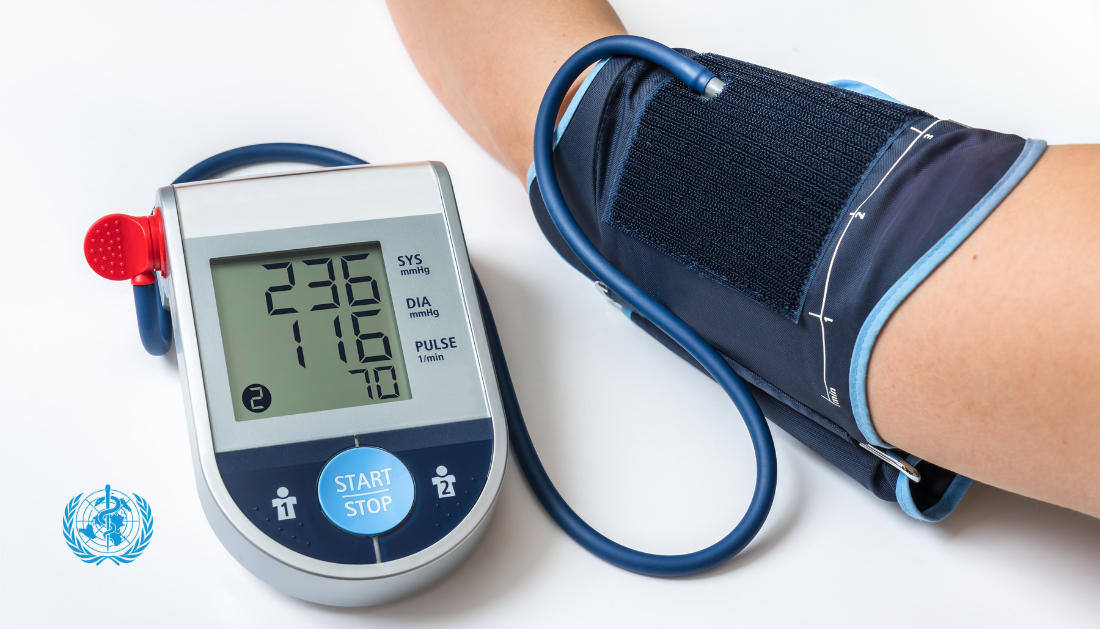

The World Health Organization (WHO) has released its Global Hypertension Report 2025, highlighting that 1.4 billion people worldwide live with hypertension. Alarmingly, only one in five individuals has their blood pressure under control. The report warns that uncontrolled hypertension is responsible for over 10 million preventable deaths annually, primarily due to heart attacks, strokes, kidney disease, and dementia.
Experts stress that it is both preventable and treatable, but poor access to essential medicines and inadequate healthcare systems continue to fuel the crisis. If left unaddressed, low- and middle-income countries could face an estimated $3.7 trillion economic loss from cardiovascular diseases between 2011 and 2025.
Explore all Cardiology CME/CE Conferences and Online Courses
Global Barriers to Hypertension Control
The report, presented during the 80th United Nations General Assembly, analyzed data from 195 countries and found critical disparities in hypertension care:
- 99 countries have national hypertension control rates below 20%.
- Only 28% of low-income countries have all the WHO-recommended blood pressure medications readily available.
- Barriers include limited access to affordable medications, lack of standardized treatment protocols, weak policies addressing salt, tobacco use, and physical inactivity, and unreliable healthcare infrastructure.
“Safe, effective, low-cost medicines to control blood pressure exist, but far too many people can’t access them.”
– Dr. Tom Frieden, President & CEO, Resolve to Save Lives.
WHO emphasizes the need for integrated care within universal health coverage (UHC), improved medicine supply chains, and stronger regulatory systems to close these gaps.
Success Stories in Hypertension Management
Several countries have successfully improved control through strategic interventions:
- Bangladesh increased hypertension control rates from 15% to 56% by strengthening screening and follow-up care.
- The Philippines expanded nationwide care using the WHO’s HEARTS technical package at the community level.
- South Korea achieved a 59% national control rate by reducing medication costs and lowering patient fees.
“Every hour, over 1000 lives are lost to strokes and heart attacks from high blood pressure, and most of these deaths are preventable. Countries have the tools to change this narrative. With political will, ongoing investment, and reforms to embed hypertension control in health services, we can save millions and ensure universal health coverage for all.”
-Dr. Tedros Adhanom Ghebreyesus, WHO Director-General.
WHO urges governments to embed hypertension services into primary care systems, improve public awareness, and prioritize lifestyle changes such as reduced salt intake, increased physical activity, and regular blood pressure screenings.
Source:
more recommended stories
 Pediatric Crohn’s Disease Microbial Signature Identified
Pediatric Crohn’s Disease Microbial Signature IdentifiedKey Points at a Glance NYU.
 High-Fat Diets Cause Damage to Metabolic Health
High-Fat Diets Cause Damage to Metabolic HealthKey Points Takeaways High-fat and ketogenic.
 Can Too Many Antioxidants Harm Future Offspring?
Can Too Many Antioxidants Harm Future Offspring?Key Takeaways High-dose antioxidant supplementation in.
 Human Antibody Drug Response Prediction Gets an Upgrade
Human Antibody Drug Response Prediction Gets an UpgradeKey Takeaways A new humanized antibody.
 Dietary Melatonin Linked to Depression Risk: New Study
Dietary Melatonin Linked to Depression Risk: New StudyKey Summary Cross-sectional analysis of 8,320.
 Type 2 Diabetes Risk Identified by Blood Metabolites
Type 2 Diabetes Risk Identified by Blood MetabolitesKey Takeaways (Quick Summary) Researchers identified.
 Microglia Neuroinflammation in Binge Drinking
Microglia Neuroinflammation in Binge DrinkingKey Takeaways (Quick Summary for HCPs).
 Durvalumab in Small Cell Lung Cancer: Survival vs Cost
Durvalumab in Small Cell Lung Cancer: Survival vs CostKey Points at a Glance Durvalumab.
 Rising Chagas Parasite Detected in Borderland Kissing Bugs
Rising Chagas Parasite Detected in Borderland Kissing BugsKey Takeaways (At a Glance) Infection.
 Can Ketogenic Diets Help PCOS? Meta-Analysis Insights
Can Ketogenic Diets Help PCOS? Meta-Analysis InsightsKey Takeaways (Quick Summary) A Clinical.

Leave a Comment